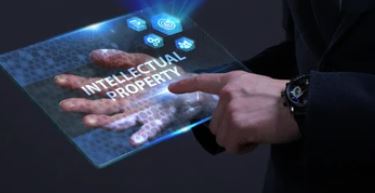Personality Rights : Through The Glasses Of IPR
INTRODUCTION
Starting from an Actor promoting tourism advertisements to a cricketer promoting daily life snacks, we live in a celebrity-driven economy. Every day we come across many such influencers and celebrities endorsing products wherein the personality of an individual is traded either by validation or without. Living in an era where influential personalities are reverenced, fortifying Personality Rights from any such misuse is a must. One such avenue to safeguard such rights is through the way of Copyright and Trademark.
[Image source: Shutterstock]
PERSONALITY RIGHT
The personality of a person is the medium through which he or she is identified and recognized in society and protecting their personality is a way of shielding their private property which is in the form of intellectual property. Personality Rights entail and protect the image, name, voice, or any part of the identity of a person from any commercial use. Personality Rights come into the picture when the personality is capable of driving the public just by its mention, it is possible when the individual carries a remarkable image and goodwill to carter.
Indian legislation does not provide exclusive statutory protection under the head of Personality Rights, but separate aid can be entreated under Copyright Act, Trademark Act, Fundamental Rights, and through various judicial pronouncements. This particular article will be focused on protection through the course of the Copyright Act and Trademark Act.
COPYRIGHT
Indian Copyright Act, 1957 holds sway over India’s Copyright functioning. Though the respective Act does not up-front mention the Personality Right occupancy it does mentions certain Sections which can help furnish a viable remedy for infringement of Personality Rights.
When it comes to dealing with Personality Rights it is very important to determine who will and who will not be covered under this regime, as previously stated the benefit of the particular rights can only be granted in the case of an Actual influential personality. The Copyright law thus in this case brings into play the word “performer”; Section 2(qq) of the said Act through an inclusive definition and illustrates a list of people who can be contemplated under the tag of the performer. This list is inclusive of Actor, Singer, Musician, Dancer, Acrobat, Juggler, Conjurer, snake charmer, a person delivering a lecture, or any other person engaging in any kind of performance. The Copyright Act not just provides with the right to produce but also Acts as a guardian to all the performances done. The performer is abetted with the right to claim damages in case his performance is distorted, mutilated, or modified in a manner prejudicial to his reputation. Performers right provided under the Copyright Act encompasses special rights, exclusive rights, and moral rights. So, in case of any Personality Right infringement the concerned person, here mentioned as the performer is harbored with the rights available under Section 38, 38A, 38B of the Copyright Act.
But as the case may be, here interpreting the definition of the performer mentioned in the Copyrights Act will not provide a complete harbor to the person as mentioned under Personality Right. Since not all performers can fulfill the prerequisites of being a recognized person, likewise not all celebrities will be sheltered under the definition of the performer. This way Copyright Act provides a partial cover to the rights of personality.
If we were to take an example, a movie is to be made about the former cricket player Saurav Ganguly, he won’t get an express cover under the definition of performer although we can still argue about the existence of his publicity rights.
Further, discussing the scope of Section 13(1) of the Indian Copyright Act in the purview of Personality Rights.
Section 13(1) of the Copyright Act speaks about the applicability of protection to:
1. Original literary, dramatic, musical, and artistic works;
2. Cinematographic films;
3. Sound recordings
In the continuance, Section 14 lays down exclusive rights to do or to authorize reproduction of their artistic works. The identity of such productions is guarded under the Act.
Relevant case law in this matter is Titan Industries Ltd. v. M/s. Ramkumar Jewelers where the defendant advertised via the hoardings featuring the images of Mr. Amitabh Bachchan and Mrs. Jaya Bachchan which originally were shot by the plaintiff and the IP rights to those images were vested with Titan Industries. Hence, the “artistic work” was misused and misrepresented by the defendant which hampered the Personality Rights of the featured figure as their identity was commercialized without control which in turn led to a permanent injunction against the hoarding by judgment pronounced by Delhi High Court.
TRADEMARK
Indian Trademark regime is governed through the Indian Trademark Act, 1999 in which Section 2(1) allows registration of any sign capable of distinguishing goods and services of one person from another. Here the word sign plays a very significant role, although the Trademark Act might not directly shield the presence of Personality Right, but Section 2(1)(m) of the said Act includes “name” under the definition of the mark.
Section 14 of the Trademarks Act,1999 guards the usage of names and any representation where an application is made for registration of the Trademark of a living person or a person whose death took place within 20 years of such application, without proper authorization. If a dishonest association is purposely presented with the above-mentioned individuals, the registrar in any such matter may try to seek the consent of the living individuals or lawful beneficiaries in case of the deceased to protect them from such abuse. The Trademark law provides property right over one’s name to individuals with a prominent personality and likewise guards it against being exploited. Thus, Section 2 and Section 14 of the Indian Trademark Act collectively patrol Personality Rights.
In the case of Gautam Gambhir. V. D.A.P. and Co. and Ors. wherein the defendant was operating his lounge and restaurant with the plaintiff’s name incorporated in its tag line (by Gautam Gambhir) without due permission or license from the plaintiff. This tag line led to deception and immediate association of the business with the cricketer thus, Gautam Gambhir sued the defendant to protect his Personality Rights.
CONCLUSION
The image of a person is what keeps the picture rolling, and each person has the right to protect what is rightfully his. Personality Rights grant protection to the representation of a prominent person for any sort of unearned commercial advantage. The identity of a person is indispensable and hence shall be preserved, may it by the way of Copyright, Trademark, or a specially coded law. The Copyright Act and the Trademark Act do guard the coast of the Personality Right, but the protection granted is not enough to cover the essence. The partial coverage might not be enough to balance the hard-earned Personality Rights, therefore now is the time for the legislature to finally recognize the presence of Personality Rights and provide consumers with a separate structured law over the same.
Author: PRISHITA RATHI, in case of any queries please contact/write back to us at support@ipandlegalfilings.com or IP & Legal Filing.



